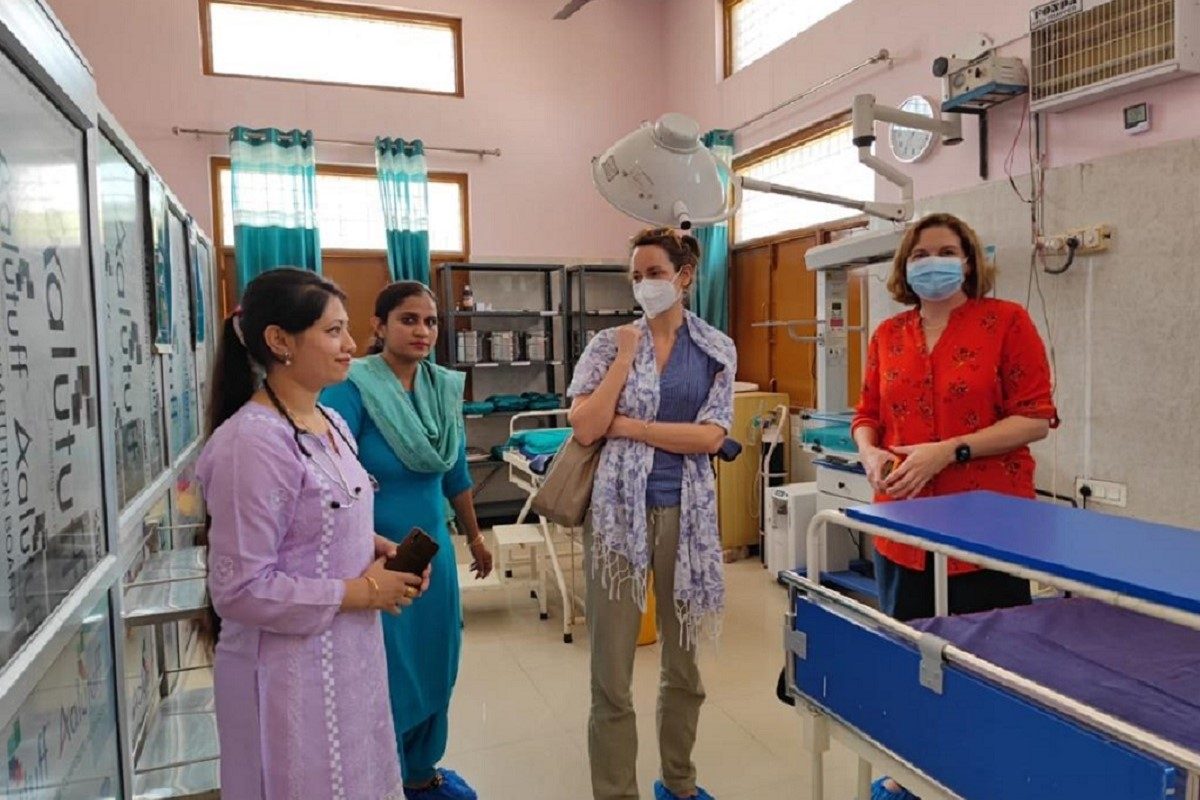
Meet Nicole Votruba: addressing health inequalities and creating healthier societies
Dr Nicole Votruba is an Honorary Research Fellow with The George Institute, UK, and a senior postdoctoral researcher at the University of Oxford’s Nuffield Department of Women’s & Reproductive Health. She is leading the design and implementation of a mental health intervention for women who are pregnant and one year after birth in rural India.
How long have you been working with The George Institute?
I started in my current role, which is linked to The George Institute, in October 2021. I am an honorary fellow here. Before that, I was working as a postdoctoral researcher at the Institute of Psychiatry, Psychology & Neurosciences at King's College London, investigating global mental health, implementation science and stigma and discrimination.
What attracted you to working at The George?
A few years ago I met Professor Robyn Norton and got introduced to the work of the Institute. When the opportunity arose to worth with The George Institute, I was thrilled. I really liked its combination of an entrepreneurial approach with world class research, which can make things move more quickly.
What are you currently working on?
I lead the SMARThealth Pregnancy Perinatal And Mental Health (PRAMH) at the University of Oxford. The PRAMH study aims to identify mothers with mental health problems during their pregnancy and the first year after giving birth and to develop a suitable intervention to support them.
The PRAMH study is a component of the broader SMARThealth Pregnancy project led by Professor Jane Hirst which aims to improve life-long health for women in rural India. A smartphone-based system supports community healthcare workers to identify women with anaemia, hypertension, and diabetes during and following pregnancy, and improve management of their healthcare.
We are looking at how we can support mothers in rural settings best in terms of their physical health but also with their mental health needs.
What impact do you hope that you can achieve with your work?
I care deeply about improving health inequalities, and I hope to improve these for women in India, and in other societies where women often have a lower social status. I hope my work will contribute to improved awareness of mental health problems, and improved help-seeking and raise the profile of mental health on the policy agenda. I would like to see more policies for perinatal mental health and more support for women to seek help and their families, which will be beneficial for their children, families and society as a whole.
My biggest achievement so far is…
Getting my PhD was an achievement for me. Working with The George Institute is an amazing opportunity, collaborating with great people and make an impact by increasing access for people to mental health care and creating healthier societies worldwide.



